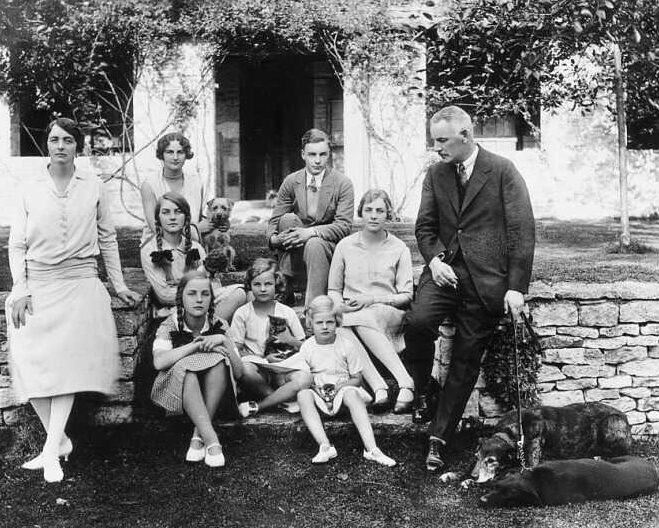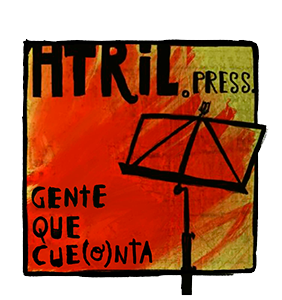
Fuente: https://en.wikipedia.org/
The train from Paris pushed south through the Pyrenees. Outside, the mountains loomed cold and jagged against a February sky. Inside, a young woman with a high laugh and a hat borrowed from a friend clutched the arm of her companion. Jessica Mitford was nineteen, the daughter of a baron, the product of country-house rituals and debutante balls. She was also on the run.
Beside her sat Esmond Romilly, nephew of Winston Churchill, the sort of reckless boy English families whispered about in drawing rooms and expelled from schools. Together, they were dashing for Spain, a country of bombs, shortages and death. For Jessica – Decca, as she was known – it was not an elopement but a declaration. In 1930s Britain, where appeasers toasted Hitler in Mayfair and dockers rattled pub jars for Republican Spain, she had chosen her side.
Few families embodied that fractured decade more completely than the Mitfords. Born to Lord and Lady Redesdale, the six sisters grew up amid genteel poverty, inventing words and believing in ghosts. From that eccentric world emerged Nancy, Pamela, Diana, Unity, Jessica and Deborah – women whose lives would stretch across the century’s extremes, from fascism to communism, scandal to satire.
Unity, tall and awkward, made herself a fixture in the Munich beer halls, trailing after Adolf Hitler like a schoolgirl with a crush. When war broke out in 1939, she shot herself in the head and lived, crippled to the end of her days. Diana, dark and incandescent, left her husband for Sir Oswald Mosley, founder of the British Union of Fascists. Married in Joseph Goebbels’ drawing room, with Hitler as a guest, she became the darling of Europe’s authoritarian salons – elegant, poised, unrepentant. When war came, she and Mosley were imprisoned as security risks, still certain of the cause.
Nancy, sharp-eyed and ironic, stood apart from ideology. She turned family chaos into literature, transforming their absurdities into The Pursuit of Love, a comedy of privilege and delusion that skewered her own class. Pamela and Deborah chose quieter paths – one raising chickens, the other becoming Duchess of Devonshire, presiding over Chatsworth with calm pragmatism as her sisters argued about the fate of Europe.
Decca’s rebellion burned hottest. In Madrid she found cold rooms and the drone of nightly bombers. She translated for relief agencies and ferried supplies through the rubble. She saw the rival factions and the shortages and felt the solidarity of people who believed decency lay in resistance.
The Mitford drawing rooms became enemy territory, her breach with family permanent. She and Romilly married in secret and later crossed the Atlantic, where she remade herself as an investigative journalist, hammering the powerful with the same irreverence that had carried her to Spain: toward danger, conviction, and the long, bright arc of defiance that would define her life.

